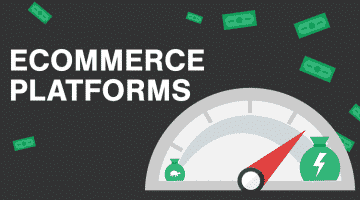It’s no surprise that the ecommerce industry is enormous and still growing rapidly. In fact, in 2021, U.S. ecommerce retail sales were estimated at $470 billion and are expected to grow nearly 15% annually in the coming years. If you’re joining that market and opening your own ecommerce store, one of the decisions you’ll need to make is the type of business entity to form.
Many ecommerce entrepreneurs elect to form a limited liability company (LLC) because of the many benefits that it offers. Here you’ll learn about those benefits so that you can decide if an LLC is the right choice for your ecommerce store.
Personal Liability Protection
As the name implies, an LLC offers personal liability protection for its owners, who are formally called members. An LLC is its own entity, separate from its members, and thus has its own assets and obligations. Members are not personally liable for those obligations; therefore, if the LLC cannot meet its obligations, creditors cannot go after member assets. The same is true if the LLC is sued and loses. Members are not personally liable for that obligation.
This differs from a sole proprietorship or partnership, where the business and the owner or owners are considered one and the same. This makes the owners personally liable for any obligations of the business.
LLC liability protection exceptions do, however, exist. If LLC members commit fraud or act recklessly in some way in the course of managing the business, they may be held personally liable.
Additionally, if the LLC applies for a business loan and a member is asked to personally guarantee the loan, the member is personally liable for the debt. Personal guarantees are quite common when the LLC has not established its own credit.
Simplicity of Formation
An LLC is simple to form and only requires filing a formation document with the state. Each state has its own formation document, which can usually be filed online with the Secretary of State’s office. Fees vary by state.
A corporation, on the other hand, requires more complex formation documents and comes with other requirements, including the drafting of corporate bylaws, the appointment of officers, and the election of a board of directors.
Sole proprietorships and partnerships do not require state filings, and come with no fees, but again, owners do not have personal liability protection.
You can find LLC formation guides that are state specific on the How to Start My LLC website. It also offers other informational articles about LLCs.
Tax Flexibility
First of all, let’s look at how corporations are taxed to provide a contrast. Corporate profits are subject to corporate taxes at a rate of 21% and also subject to corporate taxes in the states where they do business if the states have a corporate tax. Dividends paid to the corporation’s owners, called shareholders, are also taxable at the shareholders’ personal income tax rates. This means that some or all of the profits of the company are being taxed twice, which is referred to as double taxation.
An LLC, on the other hand, is not taxed. The profits of the LLC, like a sole proprietorship or partnership, are passed through to the members to be taxed at their personal income tax rates. They are reported on members’ personal tax returns on Schedule C. However, LLC members are also subject to self-employment taxes, which are 15.3% and fund Social Security and Medicare.
But an LLC has the option to elect what’s called S-Corp status. With S-Corp status, the LLC is still not taxed, and members must be paid a reasonable salary as defined by the IRS, which is subject to employment taxes, including income taxes, and Medicare and Social Security taxes. These salaries are an expense of the business, and thus not part of the profits of the company. The benefit of S-Corp status is that profits above those salaries are not subject to self-employment taxes, which can be a significant tax savings for members.
However, an LLC with S-Corp status must meet corporate requirements, including adopting corporate bylaws, appointing officers, and electing a board of directors. These requirements bring extra administrative expenses, along with the additional payroll expenses that come from the salary requirements.
This means that S-Corp status only becomes beneficial when the LLC reaches a level of income at which the self-employment tax savings exceed the additional corporate and payroll expenses.
It sounds complicated and it is, so the decision is best made with the advice of an accountant or other tax advisor.
The point is that by forming an LLC for your ecommerce business, you have a choice about how your LLC will be taxed.
Management Control
As mentioned, LLCs that have not elected S-Corp status are not subject to corporate management and administrative requirements. In fact, LLCs can be managed in any way the members choose. You only need to decide whether your LLC will be member-managed or manager-managed.
Member-managed means that all members of the LLC are active managers of the business. Manager-managed means that all members are not necessarily managers and are instead silent partners. This often occurs when one member is simply an investor in the business. In a manager-managed LLC, non-members may also be appointed as managers.
In some states, you’ll need to disclose whether your LLC is member-managed or manager-managed on your LLC formation documents, as well as the names and addresses of managers.
Flexible Distributions
In a corporation, dividends paid must be based on the number of shares owned by each owner. In an LLC, on the other hand, you can choose to distribute profits in any way that you choose. So even if the LLC has two members who each own 50% of the company, they do not have to receive equal profit distributions.
So, for example, if Don and Jane each own 50% of an LLC, but Jane is managing the business while Don is a passive investor, Don and Jane may agree that Jane will receive a distribution of 80% of the profits, while Don receives 20%.
The point, again, is that LLC members have a choice.
In Closing
As you can see, an LLC has numerous benefits for you and for your ecommerce store. Most importantly, it offers personal liability protection. While you hope that your ecommerce store will thrive, any business comes with risks, and forming an LLC can help to protect your personal assets if something goes wrong. If you’re still in doubt about whether an LLC is right for you, consult with your attorney and tax advisor to make sure you take the right path.


